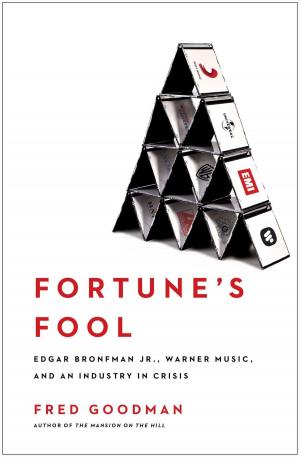The Next American Century
How the U.S. Can Thrive as Other Powers Rise
Nonfiction, Social & Cultural Studies, Political Science, Government, Political Parties, Politics, Practical Politics| Author: | Nina Hachigian, Mona Sutphen | ISBN: | 9781416553342 |
| Publisher: | Simon & Schuster | Publication: | January 8, 2008 |
| Imprint: | Simon & Schuster | Language: | English |
| Author: | Nina Hachigian, Mona Sutphen |
| ISBN: | 9781416553342 |
| Publisher: | Simon & Schuster |
| Publication: | January 8, 2008 |
| Imprint: | Simon & Schuster |
| Language: | English |
The rise of other global powers is most often posed as a sorry tale, full of threats to America's primacy, prosperity, and way of life. The potential loss of our #1 status implies a blow to our safety, economy, and prestige.
But this is a rare moment in history: none of the world's big powers is our adversaries. In The Next American Century, Nina Hachigian and Mona Sutphen show that the "pivotal powers" -- China, Europe, India, Japan, and Russia -- seek greater influence, but each has an enormous stake in the world economy and a keen desire to thwart common threats. India is a key ally in the struggle against terrorism. China's help is essential to containing pandemic disease. Russia is leading an effort to keep nuclear devices out of terrorists' hands. Japan and Europe are critical partners in tackling climate change. None of these countries is a direct military or ideological challenger. In fact, their gains largely help, rather than hurt, America's continuing prosperity, growth, and, to some extent, even its values. Will we have conflicts with these powers? Definitely. Some will be serious. But, by and large, they want what we want: a stable world and better lives for their citizens. We live in an era of opportunity, not of loss.
To take advantage of this moment, the United States must get its own house in order, making sure that American children can compete, American workers can adjust, America's military remains cutting-edge, and American diplomacy entices rather than alienates. While America must be prepared for the possibility that a hostile superpower may one day emerge, it has to be careful not to turn a distant, uncertain threat into an immediate one. Washington should welcome the pivotal powers into a vigorous international order to share the burden of solving pressing global problems of peace, climate, health, and growth.
The avenue to a truly safer and more prosperous world runs through the pivotal powers. With them, we can build a world where Americans will thrive, today and tomorrow.
The rise of other global powers is most often posed as a sorry tale, full of threats to America's primacy, prosperity, and way of life. The potential loss of our #1 status implies a blow to our safety, economy, and prestige.
But this is a rare moment in history: none of the world's big powers is our adversaries. In The Next American Century, Nina Hachigian and Mona Sutphen show that the "pivotal powers" -- China, Europe, India, Japan, and Russia -- seek greater influence, but each has an enormous stake in the world economy and a keen desire to thwart common threats. India is a key ally in the struggle against terrorism. China's help is essential to containing pandemic disease. Russia is leading an effort to keep nuclear devices out of terrorists' hands. Japan and Europe are critical partners in tackling climate change. None of these countries is a direct military or ideological challenger. In fact, their gains largely help, rather than hurt, America's continuing prosperity, growth, and, to some extent, even its values. Will we have conflicts with these powers? Definitely. Some will be serious. But, by and large, they want what we want: a stable world and better lives for their citizens. We live in an era of opportunity, not of loss.
To take advantage of this moment, the United States must get its own house in order, making sure that American children can compete, American workers can adjust, America's military remains cutting-edge, and American diplomacy entices rather than alienates. While America must be prepared for the possibility that a hostile superpower may one day emerge, it has to be careful not to turn a distant, uncertain threat into an immediate one. Washington should welcome the pivotal powers into a vigorous international order to share the burden of solving pressing global problems of peace, climate, health, and growth.
The avenue to a truly safer and more prosperous world runs through the pivotal powers. With them, we can build a world where Americans will thrive, today and tomorrow.















